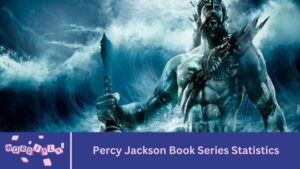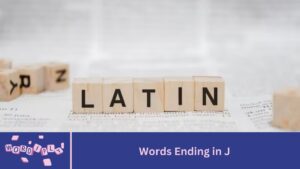Table of Contents
Boatload Puzzles captivate with their unique blend of challenge and fun, offering a rewarding experience for puzzle enthusiasts of all levels. Whether you’re a novice looking to grasp the basics or an experienced solver seeking advanced strategies, this ultimate guide is designed to elevate your puzzle-solving skills. Boatload Puzzles are known for their engaging gameplay and varying difficulty levels, making them perfect for both quick brain teasers and long, thoughtful sessions. In this guide, we’ll delve into everything from the foundational rules to sophisticated techniques that can enhance your solving efficiency. By mastering these strategies, you’ll not only improve your puzzle-solving prowess but also enjoy the process more deeply. Prepare to embark on a journey through the world of Boatload Puzzles, where every solved puzzle brings a sense of accomplishment and fun.
Getting Started with Boatload Puzzles
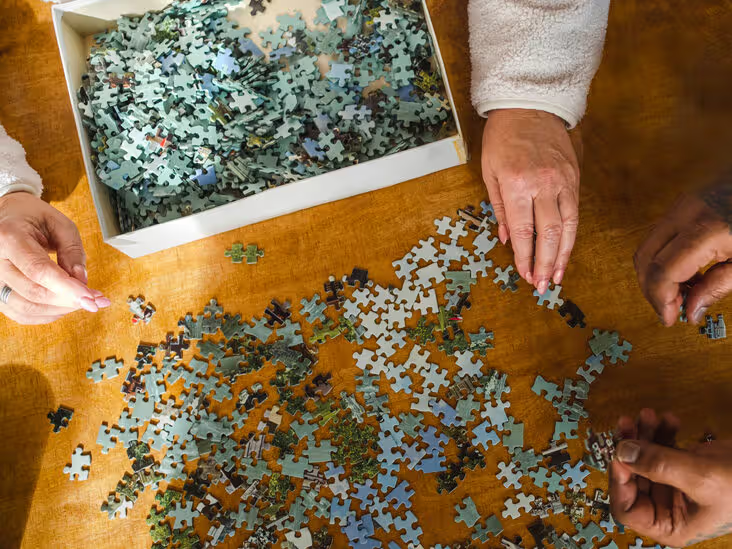
What are Boatload Puzzles?
Boatload Puzzles are a type of online crossword puzzle known for their engaging and user-friendly design. Unlike traditional crosswords, Boatload Puzzles often feature a straightforward grid layout and clues that are easy to understand, making them accessible for players of all skill levels. They are designed to be enjoyed by casual solvers and crossword enthusiasts alike.
Why Play Boatload Puzzles?
Engaging with Boatload Puzzles offers a range of benefits. Not only do they provide a fun and entertaining way to pass the time, but they also stimulate cognitive functions. Solving these puzzles can enhance your vocabulary, improve problem-solving skills, and boost overall mental agility. Moreover, the satisfaction of completing a puzzle can be rewarding and motivating.
Getting Started with Boatload Puzzles: A Beginner’s Guide
Familiarize Yourself with the Interface
- When you first start, take a moment to explore the puzzle interface. Boatload Puzzles are typically designed with a simple grid and clear navigation, so understanding how to interact with the puzzle is key to a smooth experience.
Understand the Rules
- Boatload Puzzles generally follow standard crossword rules. Each clue corresponds to a word or phrase that fits into the grid. The goal is to fill in all the blanks based on the clues provided.
Start with Easy Puzzles
- Begin with simpler puzzles to build your confidence. Easy puzzles are less complex and offer a great way to get accustomed to the format and gameplay.
Use Hints Wisely
- If you get stuck, use hints or check answers to guide you. Boatload Puzzles often provide options for hints or reveal letters, which can be helpful for beginners.
Practice Regularly
Like any skill, solving Boatload Puzzles improves with practice. Regularly solving puzzles will help you get better at recognizing patterns and solving clues.
By following these steps, you’ll be well on your way to enjoying and mastering Boatload Puzzles. Whether you’re a beginner or looking to refine your skills, this guide will help you get started and make the most of your puzzle-solving experience.
Basic Techniques for Beginners
Understanding the Rules
- Definition and Objective: Start by familiarizing yourself with the fundamental rules of Boatload Puzzles. Typically, these puzzles involve filling a grid with words based on given clues. The objective is to correctly place words into the grid to match the provided hints.
- Common Terms: Learn key terms used in Boatload Puzzles, such as “across,” “down,” “clues,” and “grid.” Understanding these terms helps you follow instructions and solve puzzles more efficiently.
Step-by-Step Guide for Beginners
- Start with Easy Puzzles: Begin with simpler puzzles to build confidence and grasp the basics. Easy puzzles are less complex and provide a good foundation for understanding puzzle mechanics.
- Read the Clues Carefully: Each puzzle includes clues that correspond to specific words or phrases. Carefully read and interpret these clues to determine what words you need to find and where they fit in the grid.
- Fill in the Obvious Answers First: Start by filling in the answers that are immediately obvious based on the clues. This often includes short words or well-known phrases that fit perfectly into the grid.
- Use Pencil and Eraser: If you’re solving puzzles on paper, use a pencil to make it easier to erase and correct mistakes as you go along. This approach helps in experimenting with different word placements without committing to permanent errors.
- Check for Overlaps and Crossings: Many Boatload Puzzles involve words that intersect with each other. Pay attention to where words overlap and use this information to validate and adjust your answers.
- Practice Regularly: Regular practice is key to improvement. The more you practice, the more familiar you will become with common clues and puzzle patterns.
Tips for Solving Basic Puzzles
- Stay Patient: Don’t get frustrated if you get stuck. Take a break and return with a fresh perspective.
- Use Word Lists: Keep a list of common words and phrases that often appear in puzzles. This can help you quickly fill in answers when clues are straightforward.
- Learn from Mistakes: Review any mistakes and learn from them. Understanding why an answer was incorrect can help you avoid similar errors in the future.
Intermediate Strategies
Pattern Recognition
Identifying Common Patterns and Tricks
- Recognizing Common Patterns: Intermediate players should begin to notice recurring patterns and structures within puzzles. For instance, certain letter combinations or configurations might appear frequently and can be used to make solving the puzzle faster and more efficient.
- Examples and Practice Exercises: Provide specific examples of common patterns and offer practice exercises that help players identify and apply these patterns in various puzzles. This section could include sample puzzles with highlighted patterns and solutions to illustrate how recognizing these patterns can simplify the solving process.
Time Management
Techniques for Improving Solving Speed
- Strategic Approaches: Discuss different strategies that can help improve solving speed, such as starting with the easiest sections of the puzzle or focusing on the most prominent clues first. Highlight the importance of staying organized and maintaining a systematic approach.
- Time Trials: Introduce time trials or timed practice sessions to help players become accustomed to solving puzzles within a time limit. Provide tips on how to manage time effectively during these practice sessions to mimic real puzzle-solving scenarios.
Managing Time Effectively During Puzzles
- Prioritization: Explain how to prioritize different parts of the puzzle based on their difficulty level or the amount of information available. Offer strategies for balancing time between more complex and simpler sections of the puzzle.
- Avoiding Common Mistakes: Share common mistakes that can lead to wasted time, such as overthinking certain clues or getting stuck on one section. Provide advice on how to avoid these pitfalls and maintain a steady pace throughout the puzzle.
Advanced Techniques for Experts
This section dives into strategies and methods that challenge seasoned solvers. The puzzles at this level require critical thinking, deeper pattern recognition, and the ability to adapt quickly to more complex scenarios. Here’s a breakdown of what would be covered:
Complex Puzzle Types
Overview of advanced puzzles: Explain how these puzzles differ from basic or intermediate ones. Advanced puzzles often have more intricate grids, obscure words, or trickier clues.
Strategies for tackling complex puzzles:
- Cross-referencing clues: Learn how to use intersecting answers to unlock tricky parts of the grid.
- Working backward: Solve from a known answer to deduce surrounding words.
- Analyzing word patterns: Focus on common word endings or prefixes, especially when clues are vague or misleading.
Letter Elimination Techniques
- Process of elimination: When you’re unsure of the answer, eliminate impossible letters to narrow down the possibilities.
- Letter frequency analysis: Using knowledge of letter frequencies (like E, S, and T in English) to make educated guesses.
- Strategic placement: Avoid placing letters prematurely; instead, build words around confirmed parts of the puzzle grid.
Filling Difficult Sections
- Zoning in on specific areas: Advanced solvers can focus on hard-to-fill sections rather than jumping around the grid. This technique prevents being overwhelmed by scattered difficulties.
- Breaking down multi-part clues: Some advanced puzzles include clues that seem multi-layered. Learn how to break them down into smaller, manageable hints.
Advanced Clue Interpretation
- Understanding tricky or misleading clues: Advanced puzzles often throw curveballs with wordplay or obscure references. This section covers how to spot these and decipher them effectively.
- Mastering indirect clues: Explore techniques for interpreting vague or thematic clues, such as puns, metaphors, or cultural references.
Time Management in Challenging Puzzles
- Staying calm under pressure: Handling time-sensitive puzzles, whether you’re competing or trying to solve them faster, requires mental stamina. This section would focus on keeping your cool and optimizing your approach.
- Breaking large puzzles into smaller chunks: This helps prevent feeling overwhelmed, allowing solvers to tackle tough grids piece by piece.
Avoiding Common Pitfalls
- Avoiding overconfidence: Sometimes, expert solvers fall into traps by rushing answers. The section would focus on how to avoid this.
- Resisting the urge to overcomplicate: When a puzzle seems too hard, it’s easy to overthink. Learn to balance intuition with logic.
Tools and Resources
In this section, we’ll explore the most useful tools and resources available for enhancing your experience with Boatload Puzzles. From puzzle solvers to engaging online communities, these resources can help you improve your skills and make solving puzzles more enjoyable.
Puzzle Solvers and Apps
For those times when you’re stumped or looking to speed up your solving process, puzzle solver tools and apps can be incredibly helpful. These tools allow you to input clues or letters to generate potential solutions.
- Online Solvers: These are web-based tools where you enter partial answers or clues to generate word suggestions. Some are tailored for crossword puzzles like Boatload, offering fast results to complete tough sections.
- Mobile Apps: Puzzle-solving apps available on smartphones provide an interactive way to work through challenges. Some apps even let you practice with daily puzzles and keep track of your progress.
Benefits of Using Solvers:
- Speed up puzzle completion by offering hints
- Learn new solving techniques by seeing how solutions are derived
- A perfect aid for both beginners and experts when needed
Printable and Digital Puzzle Resources
Depending on your preference, you can access Boatload Puzzles in both printable and digital formats.
- Printable Puzzles: If you enjoy the classic pen-and-paper approach, several websites offer downloadable and printable versions of Boatload Puzzles. These allow you to practice offline.
- Digital Platforms: Many websites host daily puzzles and offer instant feedback as you solve. This format is perfect for those who want the flexibility of solving on a computer or mobile device.
Popular Puzzle Sites and Apps:
- Boatload Puzzles: The official site offers thousands of crossword puzzles, including free daily challenges.
- Puzzle Baron: Provides a variety of puzzle types, with some excellent tools for tracking your progress.
- Crossword Solver Apps: These are helpful for when you’re stuck on specific clues, offering suggestions in real-time.
Online Communities and Forums
Boatload Puzzles enthusiasts often gather online to discuss strategies, share tips, and solve challenging puzzles together. Engaging with these communities can provide valuable insights and make your puzzle-solving journey more enjoyable.
- Puzzle Forums: Many forums are dedicated to discussing various puzzles, including crosswords like Boatload Puzzles. Members share tips, answer each other’s questions, and sometimes collaborate on difficult clues.
- Social Media Groups: Platforms like Facebook, Reddit, and Discord host communities of solvers who exchange daily puzzle experiences and advice.
- YouTube Tutorials: For visual learners, YouTube offers step-by-step guides on how to solve tricky puzzles. Watching someone solve can help reinforce techniques and give new perspectives on approaching puzzles.
Benefits of Joining Puzzle Communities:
- Get support and advice when you’re stuck on a tricky puzzle
- Share your own strategies and experiences to help others
- Stay motivated and inspired by participating in group challenges
Practice Makes Perfect
Consistent practice is key to mastering Boatload Puzzles. This section emphasizes how regular puzzle-solving can sharpen skills, enhance cognitive abilities, and ultimately make you a faster and more efficient solver.
Daily Challenges and Puzzles
- Importance of Routine Practice: Just like any skill, the more you solve, the better you get. Daily challenges keep your mind sharp, help you recognize patterns quickly, and improve overall problem-solving abilities.
- Tips for Setting Up a Practice Routine: Start by setting aside a specific time each day to solve puzzles. Whether it’s morning or during a break, this habit helps develop muscle memory for solving techniques.
- Choosing the Right Puzzle Difficulty: Gradually increase the difficulty as your skills improve. Start with easier puzzles and work your way up to the more challenging ones to ensure a steady progression
.Creating Your Own Puzzles
- Why Designing Your Own Puzzles Helps: Not only does solving puzzles improve your skills, but designing your own challenges your brain in new ways. It helps you understand the puzzle structure deeply and allows you to think like a puzzle creator.
- How to Get Started with Puzzle Design: Begin with simple grids and gradually experiment with more complex patterns. There are several tools available online to help you create and share your puzzles.
- Engaging with the Community: Sharing your puzzles with friends, family, or online communities is a fun way to test their difficulty and receive feedback.
Conclusion
In conclusion, mastering Boatload Puzzles offers both a fun and rewarding challenge for all skill levels. Whether you’re just starting or already solving advanced puzzles, the techniques and strategies shared in this guide will help enhance your solving abilities. Keep practicing, challenge yourself with more difficult puzzles, and most importantly, enjoy the process. With time, you’ll see improvements in speed, accuracy, and overall puzzle-solving enjoyment!
FAQ’s
1.What are Boatload Puzzles?
Boatload Puzzles are crossword puzzles available online, known for their vast collection of free-to-play crosswords with varying difficulty levels.
2.How do I start solving Boatload Puzzles?
Begin with easier puzzles to get familiar with common clues and solutions. Use cross-referencing techniques to fill in easier words first.
3.What is the difference between easy and hard puzzles?
Easy puzzles typically use more common words and straightforward clues, while hard puzzles feature trickier clues and more obscure words.
4.What are the benefits of solving Boatload Puzzles?
Solving puzzles improves vocabulary, cognitive function, and problem-solving skills. It’s also a fun way to relax and challenge your mind.
5.Can I improve my puzzle-solving speed?
Yes! With practice, recognizing common words and clue patterns will help you solve puzzles faster.
6.Are there any tools to help with difficult puzzles?
Yes, there are crossword-solving apps and online tools that can assist in finding solutions for tricky clues.
7.How can I recognize patterns in Boatload Puzzles?
Practice recognizing commonly used words, abbreviations, and phrases in puzzles. Over time, patterns will become more obvious.
8.What’s the best way to approach an unfamiliar clue?
Start by solving surrounding clues to get some letters filled in, and then revisit the difficult clue with new information.
9.Can beginners solve advanced Boatload Puzzles?
With patience and practice, beginners can gradually work their way up to solving more difficult puzzles.
10.What should I do if I’m stuck on a puzzle?
Take a break and return later with a fresh perspective. You can also use a hint or solve around the difficult clue.
11.Are Boatload Puzzles good for brain health?
Yes, solving puzzles regularly keeps your brain sharp, improves memory, and enhances problem-solving abilities.
12.How often should I practice solving puzzles?
Daily practice is ideal for improving your skills, even if you only solve a small puzzle or a portion of a larger one.
13.Can I solve Boatload Puzzles offline?
Yes, Boatload Puzzles can be printed from the website, allowing you to solve them offline.
14.Is there a way to create my own Boatload-style puzzles?
Yes, several online tools allow you to create custom crossword puzzles, similar to Boatload Puzzles.
15.What makes a crossword puzzle “advanced”?
Advanced puzzles typically include more obscure clues, trickier wordplay, and longer phrases that require deeper knowledge.
16.How long does it take to solve a typical puzzle?
This varies depending on the puzzle’s difficulty and your experience. Easier puzzles may take 5-10 minutes, while harder ones could take 30 minutes or more.
17.Are there Boatload Puzzle apps available?
Yes, Boatload Puzzles offers an app that allows you to play crosswords on mobile devices.
18.Can I share my completed puzzles with others?
Yes, you can print or screenshot your completed puzzles and share them with friends or fellow puzzle enthusiasts.
19.Are there daily challenges on Boatload Puzzles?
Yes, there are daily puzzles that can help you incorporate regular practice and keep your skills sharp.
20.What’s the best way to get better at solving puzzles?
The key is consistent practice, learning common crossword clues, and gradually attempting harder puzzles as your skills improve.

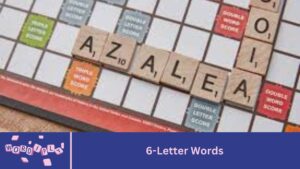
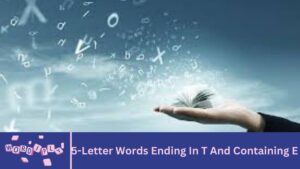
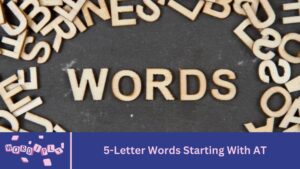
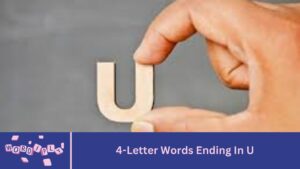

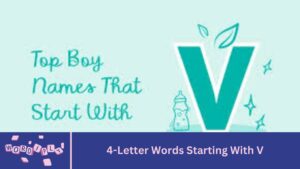
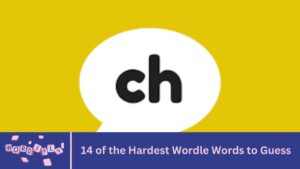
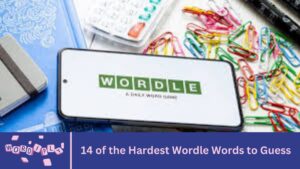
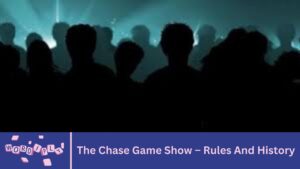
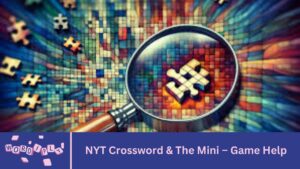
![Science Fiction Book Sales Statistics [2023]](https://wordiplypro.com/wp-content/uploads/2024/09/Add-a-heading-17-300x169.jpg)
